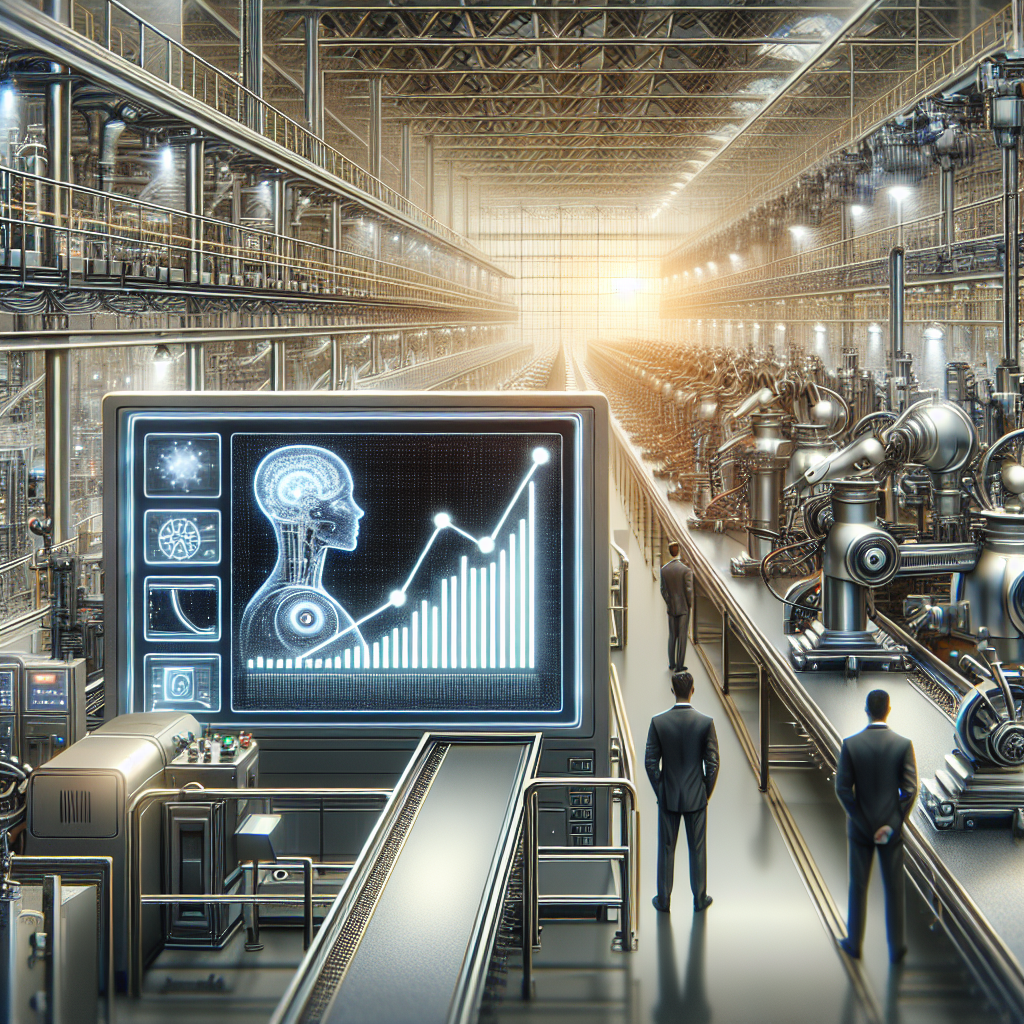Artificial Intelligence (AI) has been making waves in the manufacturing industry, revolutionizing the way companies streamline their operations. From predictive maintenance to quality control, AI deployment in manufacturing has proven to be a game-changer, helping companies increase efficiency, reduce costs, and improve overall productivity.
One of the key areas where AI is making a significant impact in manufacturing is predictive maintenance. By using AI algorithms to analyze data from sensors and equipment, companies can predict when a machine is likely to fail and schedule maintenance before any breakdown occurs. This proactive approach not only minimizes downtime but also extends the lifespan of machinery, ultimately saving companies money in the long run.
Another important application of AI in manufacturing is quality control. AI-powered systems can analyze images, videos, and sensor data to detect defects in products with a level of accuracy that is far superior to human inspection. This not only ensures that only high-quality products make it to the market but also helps companies identify and rectify issues in their production processes.
AI is also being used to optimize production processes in manufacturing. By analyzing data from various sources, such as supply chain information, production schedules, and equipment performance, AI can help companies identify inefficiencies and bottlenecks in their operations. This allows companies to make data-driven decisions to optimize their processes, improve throughput, and reduce waste.
Furthermore, AI is enabling the development of smart factories, where machines are connected and communicate with each other in real-time. This interconnected network of machines can make autonomous decisions to optimize production, adjust to changing demand, and improve overall efficiency. By leveraging AI, companies can create agile and responsive manufacturing environments that can adapt to the ever-changing market dynamics.
In addition to improving operational efficiency, AI deployment in manufacturing also has the potential to revolutionize the workforce. By automating repetitive tasks and empowering workers with AI-powered tools, companies can free up their employees to focus on more strategic and creative tasks. This not only boosts productivity but also enhances job satisfaction and reduces the risk of human error.
However, while the benefits of AI deployment in manufacturing are undeniable, there are also challenges that companies need to overcome. One of the key challenges is data quality and availability. AI algorithms require vast amounts of data to train and operate effectively, and companies may struggle to collect and clean the data required for AI deployment. Additionally, there may be concerns around data privacy and security, as companies need to ensure that sensitive information is protected when deploying AI in their operations.
Another challenge is the integration of AI systems with existing infrastructure and processes. Companies may face difficulties in integrating AI solutions with legacy systems, as well as in training their employees to use and understand AI-powered tools. Moreover, there may be resistance from employees who fear that AI will replace their jobs or that they lack the skills to work alongside AI systems.
Despite these challenges, the potential of AI deployment in manufacturing is immense, and companies that embrace this technology stand to gain a competitive edge in the market. By leveraging AI to streamline operations, improve quality control, and optimize production processes, companies can drive innovation, reduce costs, and increase profitability.
FAQs:
Q: What are some examples of AI applications in manufacturing?
A: Some examples of AI applications in manufacturing include predictive maintenance, quality control, production process optimization, and the development of smart factories.
Q: How can AI help improve quality control in manufacturing?
A: AI-powered systems can analyze images, videos, and sensor data to detect defects in products with a high level of accuracy, ensuring that only high-quality products make it to the market.
Q: What are the challenges of AI deployment in manufacturing?
A: Challenges of AI deployment in manufacturing include data quality and availability, integration with existing infrastructure, and concerns around data privacy and security.
Q: How can companies overcome the challenges of AI deployment in manufacturing?
A: Companies can overcome the challenges of AI deployment by investing in data quality and cleaning processes, training employees to use AI-powered tools, and ensuring data privacy and security protocols are in place.

